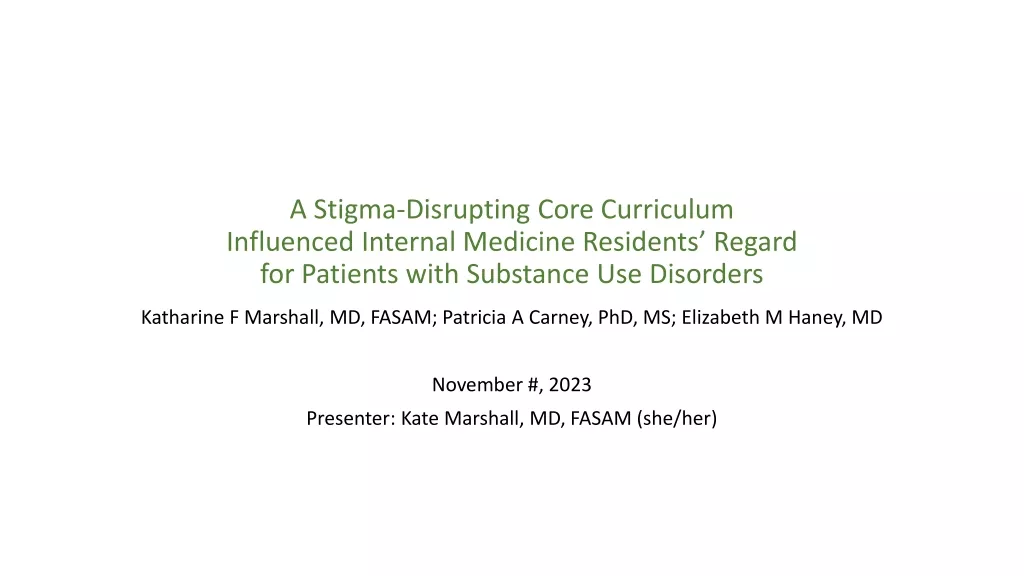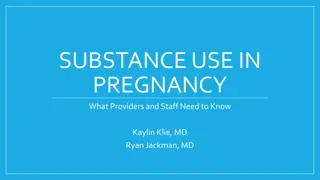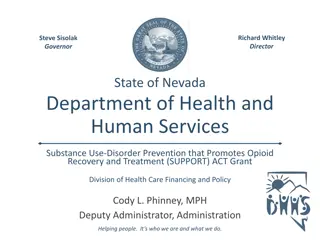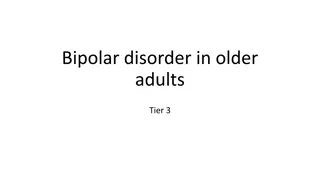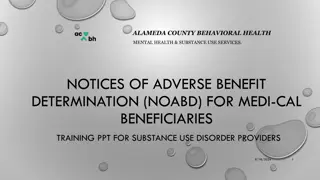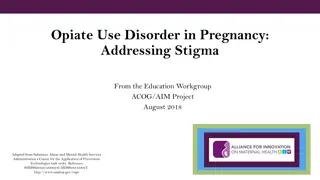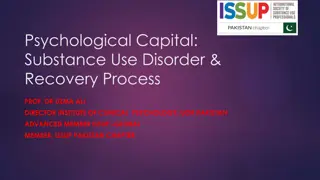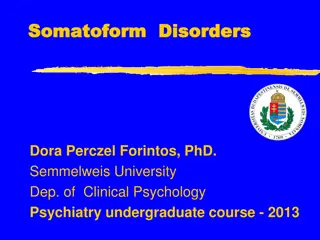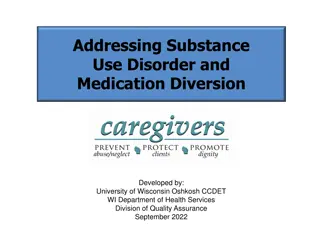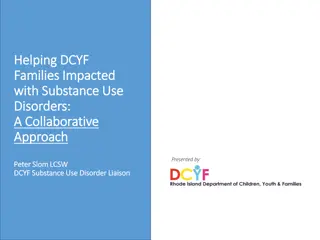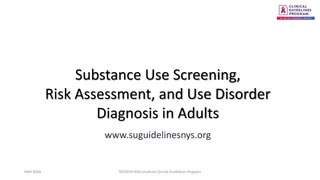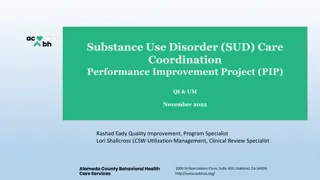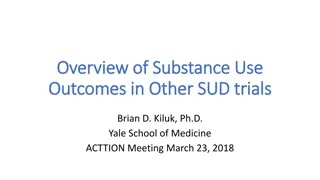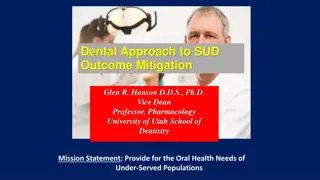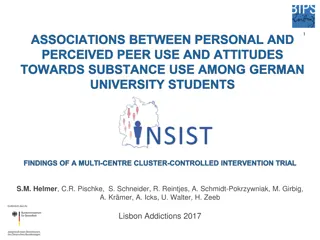Designing an Organized Substance Use Disorder Service Delivery System
This project aims to enhance Substance Use Disorder (SUD) services provided through Drug Medi-Cal (DMC) in California by offering an organized delivery system. The 5-year pilot project offers expanded services to individuals with SUD, promoting treatment access and sustained recovery. Factors such as service gaps, efficiency improvements, and benefits of opting in are considered. The initiative moves SUD services towards a medical model, emphasizing coordinated care, integrated services, and enhanced oversight by Behavioral Health Services.
Download Presentation

Please find below an Image/Link to download the presentation.
The content on the website is provided AS IS for your information and personal use only. It may not be sold, licensed, or shared on other websites without obtaining consent from the author. Download presentation by click this link. If you encounter any issues during the download, it is possible that the publisher has removed the file from their server.
E N D
Presentation Transcript
BEHAVIORAL HEALTH SERVICES DRUG MEDI-CAL: DESIGNING AN ORGANIZED DELIVERY SYSTEM FOR SUBSTANCE USE DISORDER SERVICES Sandra A. Fair Administrative Manager III Behavioral Health Services
Overview What is the 5-year Pilot Project? Factors to Consider for Opt-In Benefits of Opting into the Pilot Project Expanded Substance Use Disorder (SUD) Services Requirements Planning Steps Input and Questions
The 5 Year Pilot Project California received a waiver from the Federal Government to develop a 5-year pilot project to better serve people experiencing a Substance Use Disorder (SUD) and who are eligible for Drug Medi-Cal (DMC) under the Affordable Care Act. Counties may opt-in to the pilot project Expands services that can be funded by DMC, so more people can receive the array of SUD services they may need to enter treatment and sustain their recovery. Approximately 787,000 people are actively enrolled in Medi-Cal in Orange County Estimated: 7,000 and 13,000 Orange County residents may seek treatment for SUD in a year. Health Care Agency (HCA), Behavioral Health Services (BHS) served over 7,700 individuals with SUD in the last fiscal year. o Approximately 50% Medi-Cal Eligible
Factors to Consider for Opt-In Will Orange County benefit by participating in Pilot Project? Are there service gaps in the current SUD system and, if so, how should they be filled? Which parts of the SUD system work well? Which parts of the SUD system could work more efficiently, effectively?
Benefits of the Pilot Project DMC will fund many of the services already provided by BHS Changes SUD services from a social model to a medical model with physicians (MD) and Licensed Practitioners of the Healing Arts (LPHA) Supports integrated services with mental health and physical health Supports coordinated care and services with other systems Increases County/BHS oversight of services
Behavioral Health Services (BHS) Principles of Service Delivery System SUD is a treatable chronic disease Services must be client centered and culturally and linguistically appropriate Timely and appropriate client centered services should be based on medical necessity for treatment A continuum of care must be available Services should be coordinated, and care should be integrated with other systems Continuous Quality Assurance activities are necessary to measure and monitor the quality of services The Organized Delivery System (ODS) costs to be shared by federal, state and county governments
Requirements for Drug Medi-Cal (DMC) Providers Providers must be certified by DHCS to provide DMC services All providers must have a Medical Director (part time is acceptable) Providers must have sufficient staffing, including: Qualified treatment staff including LPHAs and certified counselors Administrative and support staff to meet DMC certification and reporting requirements Program enrollment is based on assessment by an LPHA or MD Individualized Treatment Plans must be developed and updated with active participation by client
DMC Required Services Detoxification Services Options include Medical, Residential and Ambulatory Detox BHS offers contracted social model residential and medical detox programs Residential Treatment with prior authorization by BHS 90 days for adults, 30 days for adolescents BHS offers contracted adult and adolescent programs Intensive Outpatient Treatment 9-19 hrs. per week for adults and 6-13 hrs. for youth. BHS provides Intensive Outpatient Services in Adult Drug Court Outpatient Drug Free (ODF) Up to 9 hours per week with individual and group sessions BHS offers ODF in multiple County operated and contracted locations
DMC Required Services Opioid Treatment Narcotic Treatment Programs (NTP) for Methadone Maintenance and other Medication Assisted Treatment (MAT) BHS currently contracts with one NTP with two locations Recovery Maintenance Services Services to maintain recovery, including peer support BHS contracts with a provider for recovery maintenance services Case Management Services To ensure integrated and coordinated care, as well as transition services Case management is provided to participants in all County operated and contracted programs Physician Consultation MD to MD support related to medications and treatment
Optional Services to be Provided Additional MAT Multiple medication therapies may be made available BHS contracts with two providers for injectable MAT for the criminal justice population Recovery Residences Recovery Residences (Sober Living Homes) in a supportive living environment BHS contracts with multiple Sober Living Homes for the criminal justice population while enrolled in outpatient treatment
How to Do It: Next Steps Determine types of services and number of providers needed to serve DMC population Evaluate network capacity and provider capability Develop reimbursement rates based on actual and allowable costs Draft and submit plan for local, state, and federal approval It is anticipated that the plan will be developed by the first quarter of Fiscal Year 2016-17
How You Can Help: Input and Questions Will the Pilot Project benefit Orange County? How? Are there service gaps in the current SUD system? What are they and how should they be filled? Which parts of the SUD system work well? Which parts of the SUD system could work more efficiently, effectively? Questions about the BHS DMC-ODS planning process?
Contact Information Sandra A. Fair Administrative Manager III Behavioral Health Services 405 W. 5th Street, Santa Ana, CA 92701 Phone: (714) 834-5904 Email: sfair@ochca.com



